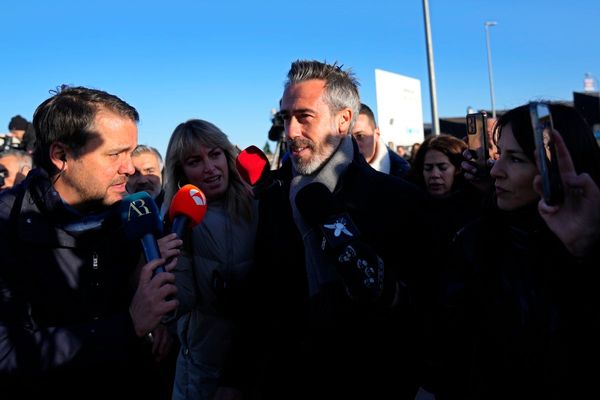Elon Musk’s extraordinary tirade on Wednesday has once again raised questions about the survival of X.
When the world’s richest person took over the social media platform then known as Twitter on 27 October last year, he acquired a historically loss-making business.
However, it was not heavily indebted and the acquisition changed that. The deal was part-funded by $13bn (£10.3bn) of debt, which now sits on X’s balance sheet and requires quarterly payments of $300m. The next payment is due at the end of January.
This gave extra edge to Musk’s comments in November last year, having laid off half the staff, that “bankruptcy isn’t out of the question”.
A rough proxy for X’s ability to serve its debt is its cashflow and, again delving into its financial history, the record is not good. In the company’s last annual results as a listed business, Twitter had negative free cashflow – spending more cash to run the business than it took in – of $370.4m in 2021.
Nothing appears to have changed on that front. Musk posted on X in July that “we’re still negative cashflow” – what he added next represented the crux of the platform’s financial dilemma: “Due to ~50% drop in advertising revenue plus heavy debt load”.
Linda Yaccarino, X’s chief executive, reportedly told lenders last month the company was cashflow positive apart from the debt servicing costs, which is a hefty caveat.
X is loaded with debt and the advertising revenue needed to pay for it has crashed. Advertising is crucial to the site’s business model – for all Musk’s comments about changing it radically into an “everything app” – and accounted for nearly 90% of revenue under previous ownership.
That flow of advertising revenue was hit as soon as Musk completed the turnover and he has consistently made management decisions, or published posts on X, that have given advertisers reason to continue withholding funds. These include: a botched change to user certification that led to a spate of impersonator accounts; the firing of key staff; the reinstatement of users such as the misogynistic influencer Andrew Tate; the approach to moderating hate speech on the platform; and, most recently, Musk’s endorsement of an antisemitic statement on X.
Frustrations over advertiser boycotts – the latest brands to pause spending include Apple, Disney and IBM after his recent post – have led to X suing two campaign groups, Media Matters and the Center for Countering Digital Hate, and to Musk’s message to reticent ad clients on Wednesday: “If someone’s going to try to blackmail me with advertising, blackmail me with money, go fuck yourself.”
Mike Proulx, a research director at the analysis firm Forrester, said after the latest Musk outburst that the billionaire was X’s biggest problem. “It is not advertisers who will kill the company, it is Musk’s continued poor business choices that are decimating it piece by piece,” he said. “And his comments last night will only drive more revenue out the door.”
Assuming that advertisers remain reluctant to return after the latest outburst, Musk’s options for keeping the business going are becoming limited and include cutting a deal with lenders on the debt burden or pumping more of his own money into the company.
Musk put more than $20bn of his estimated $220bn fortune into buying X and in 2022 he sold $23bn worth of shares in Tesla, the electric carmaker he runs as chief executive, presumably to fund that expenditure.
He can sell more Tesla shares – although a substantial number have been pledged “to secure certain personal indebtedness” – but he said in 2022 that he would not sell more stock for “probably two years”. According to calculations by Ben Silverman, the director of research at VerityData, Musk could still sell about $109bn worth of Tesla stock.
Asked by Andrew Ross Sorkin – called “Jonathan” by Musk at one point – on Wednesday whether he could deploy his personal wealth to prop up the business, he declined to say whether he would, instead saying that if X failed it would be because “advertisers bankrupted the company”.
Brian Quinn, a professor at Boston College law school, said lenders who might want to maintain a relationship with Musk and his other businesses could at least hold back from pushing X to the wall. “Rather than do that they might seek to renegotiate terms to keep the broader relationship alive and allow the business to continue to muddle along,” Quinn said. “Alternatively, the richest man alive could simply recognise that his purchase was the world’s biggest vanity project and cut a personal check.”
Wednesday’s comments make it as unlikely as ever that advertisers will help Musk avoid the worst case scenario.







